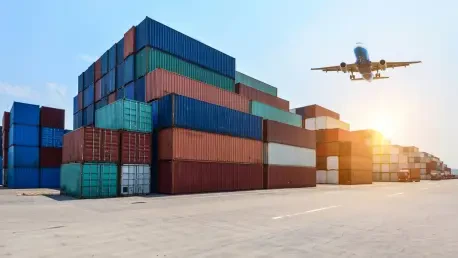In an industry characterized by rapid changes and unpredictability, Maersk exemplifies strategic adaptation within the global airfreight sector. This analysis evaluates Maersk’s resilience in the face of logistical volatility, delving into key strategies that position them as a notable leader in managing challenges such as fluctuating tariffs, geopolitical tensions, and shifting regulatory landscapes. These insights reflect current market trends while projecting future industry shifts, thus offering a comprehensive understanding of the competitive airfreight market.
Navigating Complexity: A Contextual Overview
The airfreight industry has undergone substantial transformation since its early days, with each decade introducing new challenges and technological advancements. In today’s context, these advancements are compounded by complex global factors such as infrastructure limitations and regulatory standards. Companies like Maersk now require sophisticated approaches to maintain efficiency and speed, underscored by strategic flexibility and innovation in logistics operations. Understanding these factors is essential for interpreting how Maersk’s current strategies address a landscape beset by constant disruption.
Strategic Pillars: Trends and Future Projections
Hybrid Model Implementation: Cost and Speed Dynamics
Central to Maersk’s operational framework is the hybrid model, which intelligently combines sea and air transport to optimize cost-efficiency without compromising reasonable delivery timelines. This method proves advantageous in neutralizing inherent constraints like capacity and expense linked to traditional airfreight. Maersk’s deployment of strategic hubs in regions such as Dubai and Singapore enables tailored solutions adaptable to economic shifts, despite slightly longer delivery timelines. Future projections indicate a growing reliance on such models as logistical demands become more complex.
Sectoral Specialization: Addressing Diverse Industry Needs
Maersk’s targeted focus on sectors like perishables and pharmaceuticals highlights the significance of specialized logistics in sectors where timeliness and reliability are vital. This precision in logistics, set against the backdrop of rising global demand for perishable goods and medical supplies, reflects a trend toward customized solutions addressing specific sector demands. While this diversification introduces complexities in logistics management and compliance, it also fosters innovation, setting a precedent for future sectoral specialization in logistics.
Regional Adaptations and Innovative Techniques
Region-specific strategies are pivotal in addressing the unique challenges presented by varying market demands and technological advancements. Maersk’s tailored approach disregards the one-size-fits-all mantra and instead adapts to culturally and economically diverse regional markets. This strategy affords Maersk a significant competitive advantage by accommodating the nuanced requirements of each market. As digital integration and technology continue to evolve, Maersk’s ability to innovate and adapt will likely determine its position in the future landscape.
Strategic Insights and Forward Thinking
Reflecting on these strategic movements, the airfreight industry stands on the precipice of a transformative phase, driven by digital advances, shifting economic patterns, and new trade regulations. Experts anticipate a move toward integrated digital frameworks that streamline logistics operations, enhancing both accuracy and traceability. Maersk’s commitment to embracing such innovative practices not only equips it to handle future challenges but also strengthens its leadership position in adapting to the ever-evolving airfreight landscape.
Concluding Reflections
Maersk’s multifaceted strategies have actively enhanced its adaptability, aligning logistics solutions with evolving market needs through innovative hybrid models and sectoral expertise. This has positioned the company as a benchmark for resilience within a volatile market. Other industry players can derive actionable strategies such as investing in technology for logistical precision and exploring underserved market niches from Maersk’s approach. As the logistics industry transitions, understanding these strategies will aid companies in successfully maneuvering through airfreight’s unpredictable terrain.









